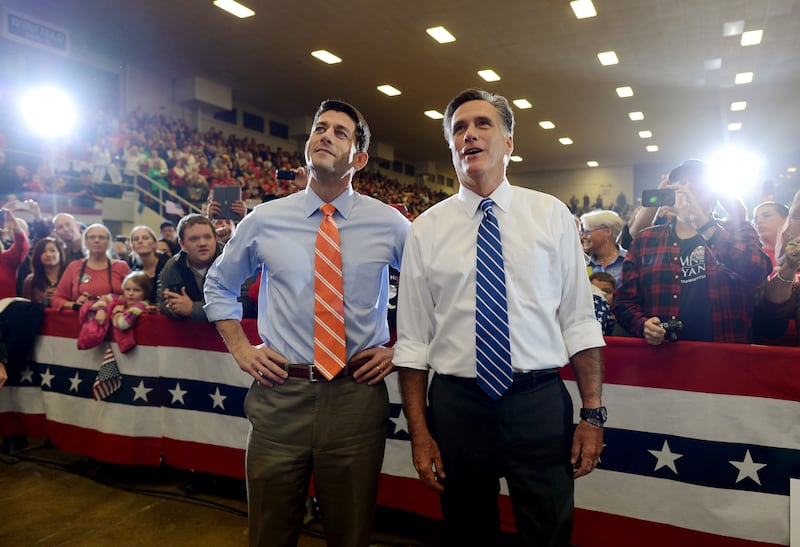When I was a young political reporter in the early 2000s, one issue that united all Republicans was a desire to reduce the size of the nation’s debt and deficit.
John McCain ran not one but two presidential campaigns on the idea that the government spent way too much money—and, in so doing, was burdening future generations with debt problems they might not be able to solve.
Paul Ryan rode his fiscal hawkishness to the national party ticket—as Mitt Romney’s vice-presidential pick in 2012—and a four-year stint as Speaker of the House. Here’s what Romney said about Ryan when he picked him for VP:
McCain passed away in 2018, after making clear his opposition to the direction that Donald Trump was leading the party. And today, neither Romney, who retired in 2024, nor Ryan, who left office in 2018, are leaders within the GOP anymore—or would even really be considered Republicans.

I would date the official death of McCain and Romney’s brand of conservatism to Tuesday, when Senate Republicans passed the so-called “One Big Beautiful Bill” (OBBB) which funds Trump’s priorities on national security and immigration while also extending the tax cuts he put into place during his first term.
Why? Because it is a full-scale abandonment of any attempt to curb the national debt—or even, really, to acknowledge it as a problem. This isn’t even a status quo bill; it actively makes the problem worse. “An initial analysis show it adding at least $3.3 trillion to the nation’s debt over the next 10 years—making it among the most expensive bills in a generation—but it would also reduce the amount of tax revenue the country collects for decades,” wrote The New York Times of the legislation. “Such a shortfall could begin a seismic shift in the nation’s fiscal trajectory and raise the risk of a debt crisis.”
And it is the final nail in the coffin—lots of morbid metaphors, I know!—of the idea that the modern-day Republican party cares about the issue that once served as its ideological center.
This, like so many other changes to the face of Republicanism in the last decade, can be traced directly back to Trump.
During his first campaign for president, Trump—mindful then that spending and debt still ostensibly mattered to GOP voters—paid lip service to the issue. But the reality was that Trump never had any interest in addressing the country’s fiscal health in any serious way, as evidenced by how he managed America’s finances during his first four years in office.
ProPublica, a nonpartisan investigative journalism site, calculated that Trump grew the national debt by nearly $8 trillion during that time—and noted federal spending under Trump was out of control long before the COVID-19 pandemic hit.
During his 2024 campaign, Trump essentially ignored discussions of debts and deficits entirely. “We’re all about growth,” Trump told Bloomberg News editor-in-chief John Micklethwait in October 2024. “We’re going to bring companies back to our country.” And, when pressed on it, he simply insisted that tariffs—“the most beautiful word in the world,” he told Micklethwait—would make up any spending gaps in his plans.
Tariffs have indeed been an on-again, off-again feature of the first six months of Trump’s second term. But there’s no serious economist who now believes that they are going to end—or even begin to address—our debt and deficit.
We can debate whether the OBBB was necessary, politically speaking, for Republicans to pass. (I think it probably was, despite the fact that it is deeply unpopular.) But what we cannot debate is that the legislation represents a total and complete abandonment of any attempt to stay true to the principles of fiscal conservatism on which the modern-day GOP was built.
In Trump’s version of the Republican party, debts and deficits are problems for someone else to worry about—at some indeterminate time in the future.







